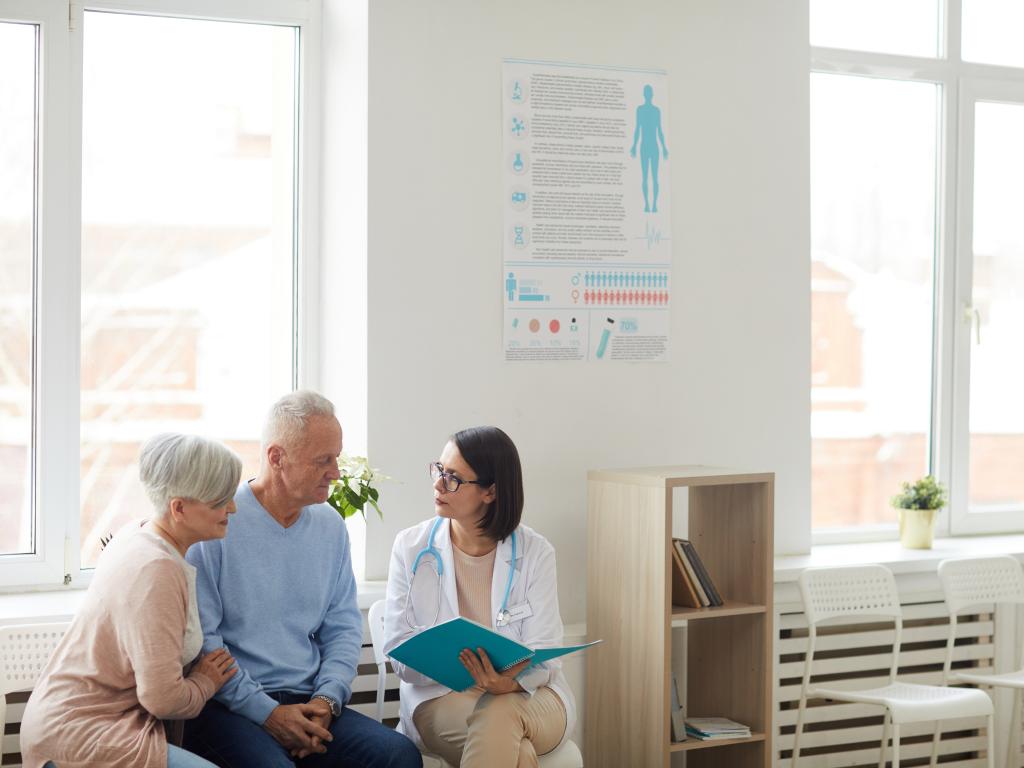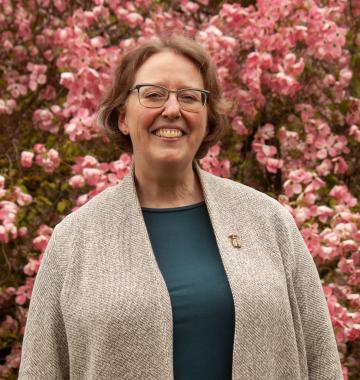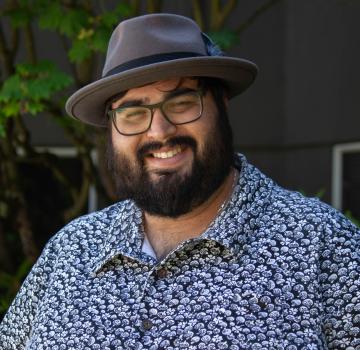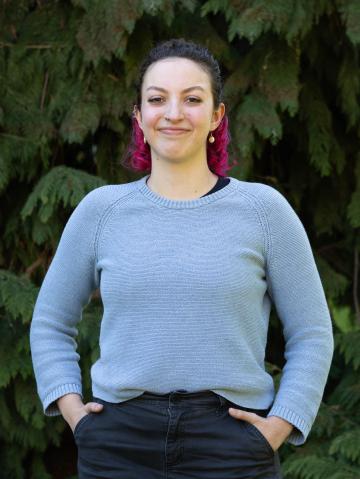
Editor's note: This article was produced by a student participating in the course J477/577: Strategic Science Communication, a collaboration between the School of Journalism and Communication’s Science Communication Minor program and the Research Communications unit in the Office of the Vice President for Research and Innovation.
When trying to capture the dynamic, multi-generational process of science, where do you begin? You could start with Mallory Mitchell, a recent University of Oregon graduate who feels unsure of her future. Or maybe with Michael Silverstein, a graduate student who followed his mentor across the country to continue collaboration. Perhaps it’s best to start with the Philip H. Knight Chair and Professor Ellen Peters, who runs the Cognitive and Affective Influences Decision Making (CAIDe) Lab at the University of Oregon.
The CAIDe Lab can be found down winding corridors at the heart of the oddly shaped Franklin building. The lab is unassuming: desks, a couch, a typical lab whiteboard, and knickknacks Silverstein has collected over the years. This is where collaborators from around the world connect on essential research that helps us understand why we as humans make certain decisions and how to make better ones.

When Peters started the CAIDe lab and took over as the director of the Center for Science Communication Research (SCR) in 2019, she put together a team that includes undergraduates, grad students, postdoctoral researchers, support staff, and international collaborators.
Some of the research done in the CAIDe Lab has ethical implications in the medical field, which Silverstein has been focusing on for the last few years.
He has been doing psychology research since he fell in love with it during his undergraduate degree at Muhlenberg College in Pennsylvania. After receiving a grant to conduct summer research about affect (people’s emotions), numeracy, and decision-making, Silverstein traveled to Ohio State University to meet with Peters. He would then join Peters at to Ohio State for graduate school.
And when Peters announced she was moving her lab to the UO, Silverstein accepted the invitation to follow her not three hours after she invited him. “After a year of good collaboration and productivity, I wasn’t going to let that go,” Silverstein said.

As Peters built up the CAIDe lab, Silverstein began mentoring undergraduates to help them build up the skills they need to get deeply involved in research.
In the CAIDe Lab, everything is a chance for collaboration, and everyone has a mentor. While Peters helps postdocs sharpen their mentoring skills, grad students are being prepared for industry or academic careers. In turn, undergrads are beginning to learn the research process and building foundational skills. The lab is a research communi
“It’s a really cool ecosystem to be in because it is inherently trying to be collaborative and to further everyone,” Silverstein said.
Mallory Mitchell started work in the lab in a very conventional way. For six months she was a general undergraduate research assistant just looking to get into a lab for her pre-med track. She was drawn to the lab by the research on medical decision-making the lab had published. Mitchell liked the approach of the lab, which focused on the how and why of medical decision-making and the ethics behind it. Then she began to work more directly with Silverstein to help him with his research project studying how affect can motivate their reasoning in medical decisions.
“Maybe it is a bit of Stockholm syndrome, but the more I worked on it, the more interesting it became,” Mitchell said. In the spirit of collaboration and mentorship, independent projects that build on existing work are highly recommended in the lab. Mitchell’s project is a direct follow up of the research she helped Silverstein with the year before. Her study will look at how people’s mood and affect towards a medical issue—in this case a fungal infection—will impact their decisions.

To do this work Mitchell spent five months writing a small grant proposal for a grant offered by the SCR, which gave Mitchell a chance to practice grant writing in a low-stakes, highly supported environment. She was awarded the grant in April.
“Michael has a really good way of critically looking at pieces without devaluing them. It has been one of the most valuable things I have gotten out of the lab,” Mitchell said.
The goal of the small grant program is to expand the breadth and quality of science communication research done on campus, from undergrads to faculty.
In the future, Peters wants to expand the CAIDe lab to research how science communication can help people reason through implications of climate change. “It is going to have an enormous influence and take an enormous toll on people’s lives,” Peters said.
Peters and her team want to help people respond to climate change hazards in ways that keep them protected.
Small grant programs like the one offered by the SCR can get this kind of research off the ground. “Undergrads can apply any time,” Peters said. “We encourage them to apply,” She added with a laugh.
In practice, science is always adapting, always building, and always pushing forward. The CAIDe Lab provides an opportunity for many kinds of people to work together to do the science that matters.
